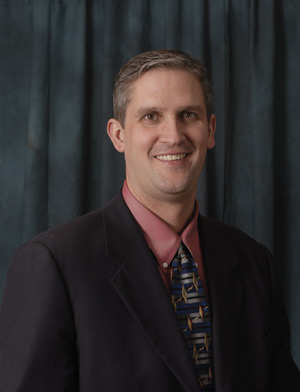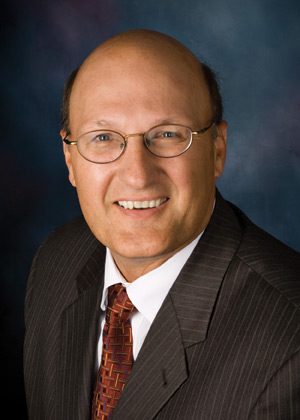Changing of the Guard at NBB



December 20, 2010
At the November National Biodiesel Board meeting in St. Louis, biodiesel industry stakeholders came together to establish its governance structure for 2011. This included the development of policy resolutions and the election of the governing board and board officers. Ed Hegland, soybean grower from Minnesota, served as the NBB chairman for the past 3 years. During that time, Hegland relied heavily on the leadership of his vice chair, Gary Haer from the Renewable Energy Group. In the recent elections, Haer became the first biodiesel producer to be elected chairman of the board of directors. In this candid dialogue, NBB's immediate past chair interviews NBB's new chair about the significance of the election of a producer chairman, the future of the industry and more.
Hegland: First of all congratulations on your unanimous election as NBB chairman. While you are the first producer to be elected chair, it really shouldn't be a surprise to anyone. You have served as a significant part of the NBB leadership for the last decade, and especially so during the past three years as vice chair. What do you see as the significance of this election, and your new leadership role?
Haer: I have been honored to serve on NBB's executive committee for the past nine years, and I'm humbled by my election as the new chair. I will have big shoes to fill with NBB's long and proud tradition of farmer leaders, whose policy support and checkoff investment made the U.S. biodiesel industry possible, and continues to help fuel it today. I've especially been honored to serve and work closely with you over the last three years. There are two things that I have come to admire most about your leadership, which I intend to carry forward. First, you have always been willing to step up and face difficult issues and address them head on. Second, you have always demonstrated a willingness to listen to our members, be in touch with their concerns and needs, and to lead in a way that was truly in the best interests of the industry as a whole. Those are principles that I am committed to as well. We have some enormous economic and policy challenges that we continue to face, and it is imperative that we continue to face them as a unified industry.
Hegland: What is your vision of how we get from the economic situation that we are in now to where we need to be?
Haer: If we are going to have a healthy, sustainable, growing industry, it has to be profitable for domestic biodiesel producers to operate. A healthy, growing U.S. biodiesel industry is good for all NBB members, including producers, marketers, distributors and feedstock producers. While we had the policy framework in place to make that happen, Congress' inability to pass timely tax legislation left the industry stranded in 2010 with a lapsed tax credit and a delayed RFS2. The positive news is that 2011 is poised to be perhaps the biggest year ever, with approximately 800 million gallons of biomass-based diesel required by law. However, it may take a few months for all of the remaining uncertainties to be resolved and for the program to really begin to generate demand. There are many NBB producer members who simply will not be able to wait any longer. This is especially frustrating considering that Congress could put this industry back to work immediately with the stroke of a pen.
Hegland: One thing discussed at the November board meeting was the need to re-launch and redefine biodiesel as an advanced biofuel, rather than being labeled by our opponents as a "conventional biofuel." If the biodiesel industry is going to compete in the new advanced biofuel market that will be created by the RFS2, people need to know that biodiesel is currently the only commercial-scale, domestic fuel that meets the EPA's definition of advanced biofuel.
Haer: This is truly a defining moment for our industry, and we must seize the opportunity to define ourselves rather than be defined by others. NBB staff, led by the CEO, are working on new ways to emphasize biodiesel's role as an advanced biofuel, its carbon, energy balance, diversity benefits, and the fact that biodiesel has net benefits to the food supply. These efforts clearly illustrate how unity and resource leveraging are critical. While NBB producer members' volume dues will remain primarily focused on supporting our federal and state regulatory affairs program, NBB's soybean farmer members continue to support these efforts with additional funds above and beyond their current level of technical and communications support.
Recognizing the tremendous challenges that we have before us, I would like to appeal to all biodiesel stakeholders for their help and support in getting this industry to better times. I am committed to working with this outstanding governing board to serve the industry and the organization to the best of my ability. I'm committed to inclusiveness, transparency, and open communications among membership and leadership. I eagerly invite your input and ideas, as we will need all of the good minds the industry has to offer. This industry has struggled before, but we have always come through it stronger. I am confident that together, we can get through this challenge as well.
Hegland: First of all congratulations on your unanimous election as NBB chairman. While you are the first producer to be elected chair, it really shouldn't be a surprise to anyone. You have served as a significant part of the NBB leadership for the last decade, and especially so during the past three years as vice chair. What do you see as the significance of this election, and your new leadership role?
Haer: I have been honored to serve on NBB's executive committee for the past nine years, and I'm humbled by my election as the new chair. I will have big shoes to fill with NBB's long and proud tradition of farmer leaders, whose policy support and checkoff investment made the U.S. biodiesel industry possible, and continues to help fuel it today. I've especially been honored to serve and work closely with you over the last three years. There are two things that I have come to admire most about your leadership, which I intend to carry forward. First, you have always been willing to step up and face difficult issues and address them head on. Second, you have always demonstrated a willingness to listen to our members, be in touch with their concerns and needs, and to lead in a way that was truly in the best interests of the industry as a whole. Those are principles that I am committed to as well. We have some enormous economic and policy challenges that we continue to face, and it is imperative that we continue to face them as a unified industry.
Hegland: What is your vision of how we get from the economic situation that we are in now to where we need to be?
Haer: If we are going to have a healthy, sustainable, growing industry, it has to be profitable for domestic biodiesel producers to operate. A healthy, growing U.S. biodiesel industry is good for all NBB members, including producers, marketers, distributors and feedstock producers. While we had the policy framework in place to make that happen, Congress' inability to pass timely tax legislation left the industry stranded in 2010 with a lapsed tax credit and a delayed RFS2. The positive news is that 2011 is poised to be perhaps the biggest year ever, with approximately 800 million gallons of biomass-based diesel required by law. However, it may take a few months for all of the remaining uncertainties to be resolved and for the program to really begin to generate demand. There are many NBB producer members who simply will not be able to wait any longer. This is especially frustrating considering that Congress could put this industry back to work immediately with the stroke of a pen.
Hegland: One thing discussed at the November board meeting was the need to re-launch and redefine biodiesel as an advanced biofuel, rather than being labeled by our opponents as a "conventional biofuel." If the biodiesel industry is going to compete in the new advanced biofuel market that will be created by the RFS2, people need to know that biodiesel is currently the only commercial-scale, domestic fuel that meets the EPA's definition of advanced biofuel.
Haer: This is truly a defining moment for our industry, and we must seize the opportunity to define ourselves rather than be defined by others. NBB staff, led by the CEO, are working on new ways to emphasize biodiesel's role as an advanced biofuel, its carbon, energy balance, diversity benefits, and the fact that biodiesel has net benefits to the food supply. These efforts clearly illustrate how unity and resource leveraging are critical. While NBB producer members' volume dues will remain primarily focused on supporting our federal and state regulatory affairs program, NBB's soybean farmer members continue to support these efforts with additional funds above and beyond their current level of technical and communications support.
Recognizing the tremendous challenges that we have before us, I would like to appeal to all biodiesel stakeholders for their help and support in getting this industry to better times. I am committed to working with this outstanding governing board to serve the industry and the organization to the best of my ability. I'm committed to inclusiveness, transparency, and open communications among membership and leadership. I eagerly invite your input and ideas, as we will need all of the good minds the industry has to offer. This industry has struggled before, but we have always come through it stronger. I am confident that together, we can get through this challenge as well.
Advertisement
Advertisement
Advertisement
Advertisement
Upcoming Events





